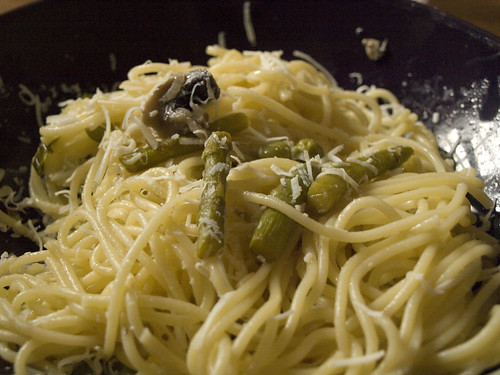Antonís was fed up. Really fed up. He hadn't left the outpost on leave in over a month, and the 5-6 new recruits the Captain had promised had failed to materialise, with the exception of Sotirakis. They were severely understaffed and had to do a combined 6 hour patrol and guard shift every day, including the outpost sergeant and sometimes the second lieutenant as well. Passes and leave were really hard to come by. Petros had to beg the captain to be allowed a three-hour pass every other day for his football training.
When this situation arose, the conscripts adopted various methods in order to go home. The most common one was of course doing a runner. The afternoons and evenings, when the officers had finished work, was the best time to jump the fence and hitch-hike home for some food and clean clothes. This was of course extremely risky, as being caught by the odd surprise visit by the officer-on-duty or even an external check, meant a certain court martial and a prison sentence.
The ones who weren't lucky enough to be football or volleyball players in one of the region's clubs had to either shut up or go off sick. Going off sick wasn't easy either. Sick leave wasn't simply allowed to anyone with a mild cold,it had to be something serious. Or you had to know the regimental doctor, who could give you sick leave without asking questions. Or perhaps, you could ensure you were sick enough for a sick leave. Andreas had chosen the second way. His father, a known businessman in the area, organised frequent feasts (and brothel visits) with the regimental doctor, and was in a position to get Andreas out on 'sick leave' pretty much on will. And Andreas duly obliged-he was more or less permanently on sick leave. When his sick leave ended, he turned up at the outpost to a frosty and often hostile reception. Antonís hated him, as his sick leaves meant that everyone else had to patiently sit it out. Andreas knew this, and his first business after returning from sick leave was to hop on to the regimental jeep bringing the food and go see the doctor again, to his colleagues' dismay.
Antonís was determined to go on leave. He hadn't seen his fiancée in ages, and his father needed his help to collect the potatoes. His cunning plan was to acquire an injury which forced him to go on sick leave but also allowed him to do whatever he liked. He remembered hearing somewhere that if you held your hand over steam for some time, it was possible to break a finger without any effort or pain. This was probably another one of those urban legends conscripts ensured survived for generations from the times of Hammurabi's armies to our day. Unfortunately Antonís, out of school and into the building trade since the age of 13, was almost illiterate and had heard of neither Hammurabi nor his armies.
So there he was, holding his left hand above a steaming saucepan where the lads were boiling potatoes. He had expressly instructed Stavrís to hit his pinky with the rifle butt while he held it against the kitchen sink. Any more damage and he wouldn't be able to lift the bins full of potatoes onto the lorry. He could do without the pinky, he thought, it was only a small finger at the end of the day.
So there they stood, Stavrís with the rifle, Antonís with his left hand above the saucepan. "How long does it have to stay?" asked Stavrís. "I reckon about half an hour" replied Antonís, ridiculously over-confident. "Five minutes and we do it-are you sure you can handle it?" he asked, staring straight into Stavrís eyes for signs of fear. Stavrís' had been secretly cherishing the opportunity to smash Antonís' finger, and if anything he was over-zealous. "Sure, no problem at all. But hurry it up because I am on guard duty as well." The outpost dog, Linda, was sitting there, staring at them and patiently waiting for scraps-thinking they were cooking.
"Let's do this" said Antonís as he turned away from the cooker and placed his hand, pinky outstretched, against the kitchen sink. Stavrís approached carefully, lifted the rifle and smashed it onto Antonís' hand as hard as possible. The loud bang, quickly followed by Linda's yelps, filled the tiny room and rang for a few seconds before the smoke and the debris from the kitchen ceiling cleared. All that could be heard was Antonís' screams of agony, as he was lying on the floor curled up and holding his left hand with his right. Stavrís had dropped the smoking rifle and was also curled up on the floor, holding his ears. The loud bang from the rifle had almost deafened them, and they couldn't hear the howls of laughter which came from the rest of the squad who had run to the kitchen door to see what had happened.
When they finally managed to get up, they couldn't hear a thing. Kostís, the sergeant, had a notepad and was scribbling questions on it. "Can you move your finger?". Antonís nodded. "Can you bend it?" Antonís nodded again. "It looks very red but not broken to me mate-do you want to try again?" Antonís just burst into tears, more out of humiliation than pain.
As it happened, both Antonís and Stavrís had about a couple of weeks off, as their eardrums had burst and the regimental doctor had no option but to send them off with antibiotics. They would of course be punished on return, as they discharged a rifle without permission, but for the time being they had the last laugh, although they could only hear a muffled noise.
________________________________________
Part of the Army Tales series





